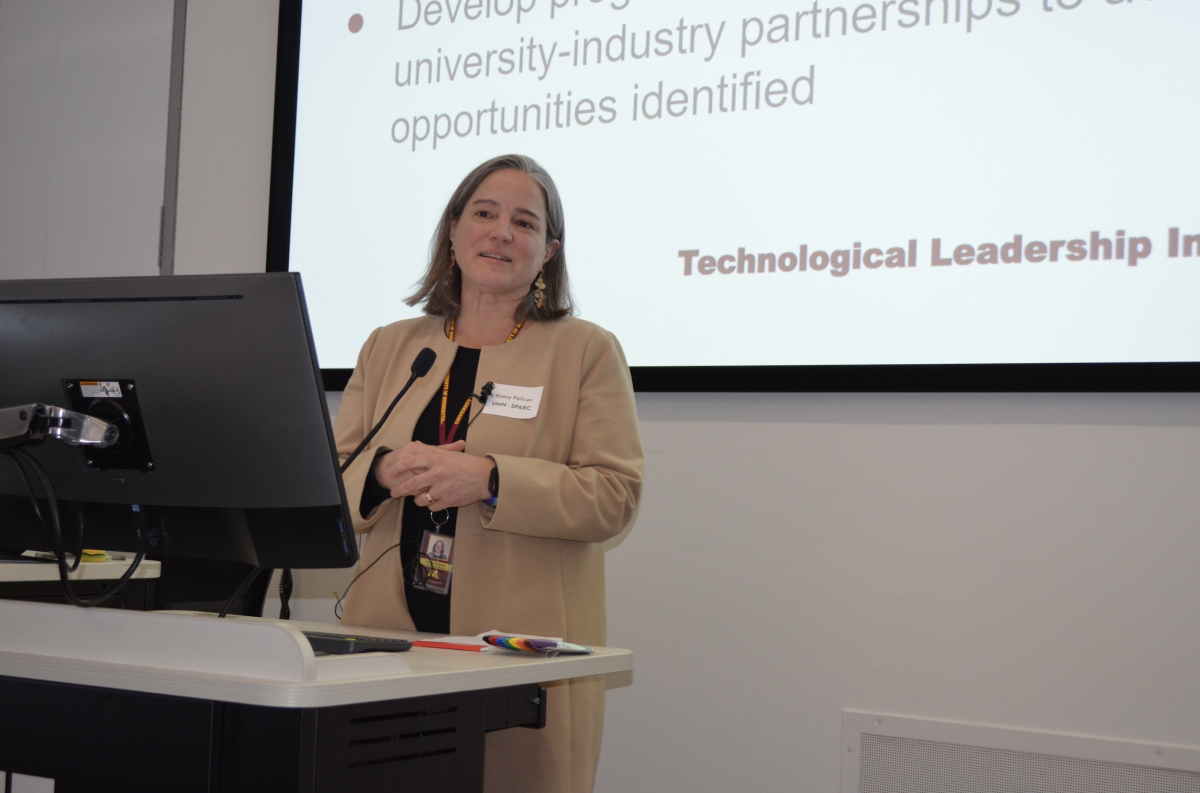TLI-Hosted Symposium Focuses on Building Electrification Partnerships

A gathering on the University of Minnesota campus Thursday brought together representatives of industry, academia and government to discuss how to prepare to convert fossil-fuel-based power systems across the nation to electricity.
Kicking off the Electrification and Workforce Development Symposium at the U of M’s Twin Cities campus, College of Science and Engineering dean Andrew Alleyne told attendees that the engineering challenges raised by electrification might initially seem daunting, but it also represents the sort of problems that engineers relish.
“That’s the bread and butter for engineers,” Alleyne said to the audience of nearly 100, attending both in person and via Zoom. “Show us an upside and we’ll figure out how to overcome technical obstacles so that we can design, build and get a product ready for the marketplace.”
But, he cautioned, it will take more than just engineering smarts to make this cleaner, greener future a reality. “We will need to work collaboratively across disciplines and across companies,” Alleyne said.
The bottlenecks that threaten to slow progress toward innovation, Alleyne noted, aren’t just technical. Industry, government and academia will need to work together in order to be effective. Foremost on the minds of attendees were the challenges in recruiting enough engineers to do the needed work, which will take decades to complete.
Hundreds of thousands of power engineers will be needed over the next five years, at a time when undergraduate enrollment is declining, he said.
Participants discussed a number of public-private initiatives that might help encourage students to choose electrification as a career, including apprenticeships and mentoring opportunities for high school students, and sponsoring STEM camps and activities for elementary and middle-school kids.
Talks also focused on the need for different sectors to work together collaboratively in order to make the most of research funding.
Dr. Katey Pelican of the U's Strategic Partnership and Research Collaborative (SPARC) facilitated breakout groups tackling specific questions in building the new public-private collaboration.
The overall objective for the symposium was to build the foundation for a Minnesota-based consortium that will make the upper Midwest an important player in the national push toward electrification.
The symposium was hosted by the University of Minnesota’s Technological Leadership Institute and included engineers attending both in-person and online, representing a number of entities currently working on issues related to electrification infrastructure, including Thermo King, Polaris. 3M, Zeus Electric Chassis, Wabtec, Arctic Cat and Trane Technologies. Representatives of the University of Minnesota and the State of Minnesota were on hand as well.